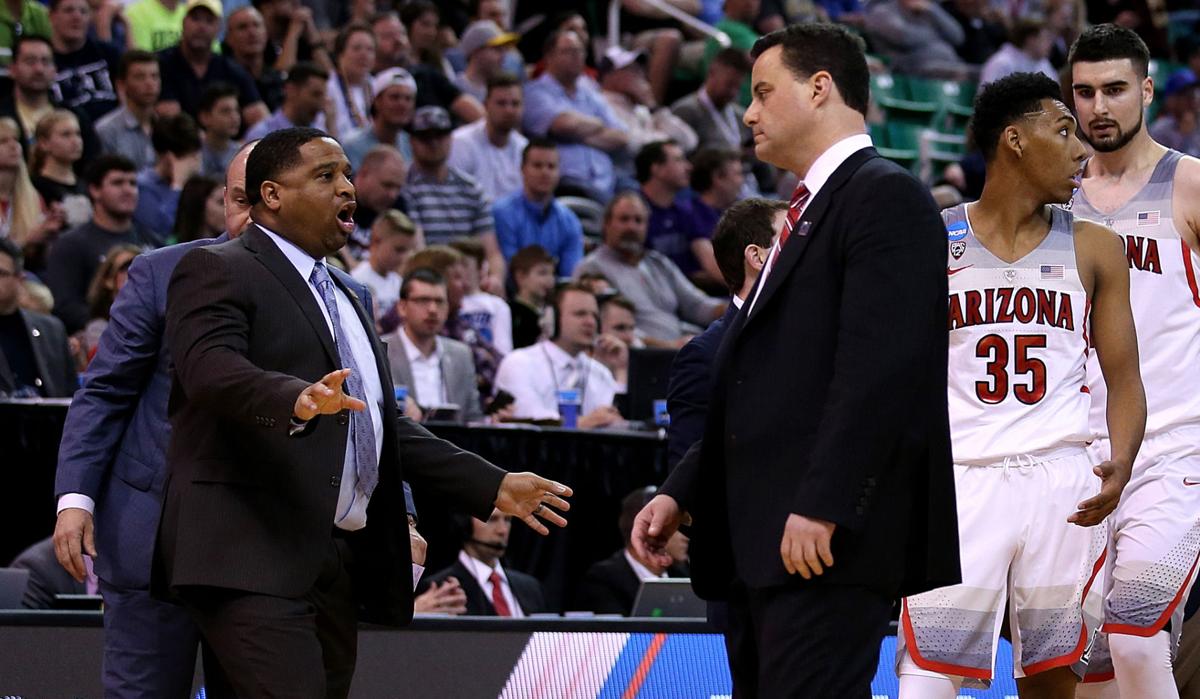The NCAA’s commission on college basketball recommended stiffer punishments for violators, strict certification of agents and the ability for undrafted underclassmen to return to college in a report released Wednesday morning.
The commission also asked for plenty of help, from the NBA and its players association to get rid of the one-and-done rule, and from the NBA and USA Basketball in holding summertime recruiting events to replace those now often run by shoe companies.
However, the commission stopped short of redefining the NCAA's notion of amateurism.
The commission announced its findings at 5 a.m. Wednesday, nearly seven months after a Sept. 26 federal complaint was released that resulted in the arrest of then-UA assistant coach Book Richardson and three other assistant coaches.
The commission was formed several weeks later, as well as a parallel Pac-12 commission, and since then several other schools and individuals have also been linked to the sweeping investigation into college basketball.
“The majority of people in college basketball play fair and do the right thing,” commission chair Condoleezza Rice said at the news conference. “We applaud them and we hope our recommendation can level the playing field.”
Here’s a summary of what its 53-page report said:
-- The commission called on the NBA and NBA Players Association to lower the age minimum to 18, thus ending the “one-and-done” rule. It also said the NCAA should monitor the case of talented players who reclassify in high school, which could potentially create a new class of 17-year-old “one and dones.”
It said it did consider but does not recommend a “baseball style” rule in which players who enroll into college would be stuck there for two or three years, saying those who emerge as top prospects could become “disgruntled magnets for corrupt money.”
While a Pac-12 task force offered similar recommendations on many items, it recommended a three-year baseball style rule.
If the NBA and NBAPA do not choose to change the one-and-done rule by the end of 2018 (it reportedly could happen by 2020) the commission said it would consider adding a baseball-style rule, lock up a scholarship for three or four years if an athlete leaves early or impose freshman ineligibility.
“In short, the current situation is untenable,” the commission wrote in its report.
-- Players who declare for the NBA Draft and seek input from the NBA’s Undergraduate Advisory Committee but are not taken should be allowed to return to school.
-- It also recommended transfers still be required to sit out a redshirt year, even as there has been talk of eliminating it for players in good academic standing. And it recommended the NCAA keep an eye on the growing graduate transfer climate, because “we heard that recruiting and tampering related to potential graduate transfers is rising.” (additionally, only 34 percent of graduate transfers actually get a graduate degree).
-- Players who want to meet with an agent in high school should be allowed to, but the NCAA should strictly monitor the agents allowed to offer advice.
-- A fund should be established for pay for the degree of those who finish at least two years, with the NCAA taking funds from the NCAA basketball tournament revenues to help schools where doing so would be a burden.
-- Because the issue of players being paid for their likenesses is still a legal issue, the commission stayed out of it.
--Investigative and enforcement procedures should be overhauled, with independent arms to resolve complex and serious cases.
-- It recommended stiffer penalties for violators, including up to five-year postseason bans, lifetime show-cause orders on coaches and bans on recruiting visits for a full year. College administrators also should be accountable and the NCAA should have jurisdiction to address academic fraud even if it benefited other students (a likely reference to the North Carolina case).
-- The commission suggested a shake-up of outside recruiting events, which are often sponsored by apparel firms Nike, Adidas and Under Armour. It suggested requiring more transparency about the funding behind them and recommended that by July 2019, events would be held in conjunction with USA Basketball and NBA with the NCAA expected to “devote significant resources.”





